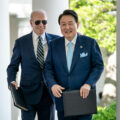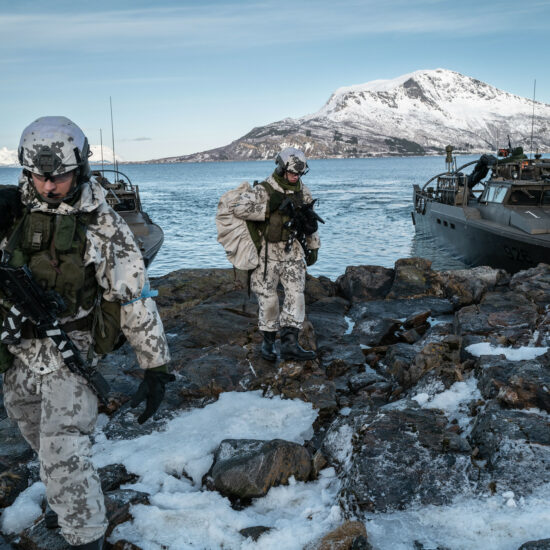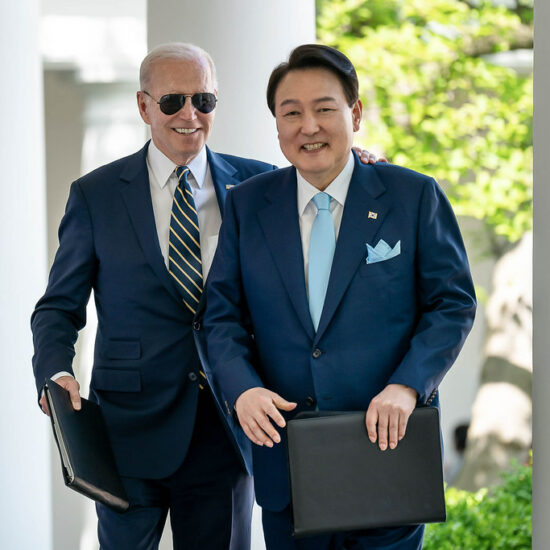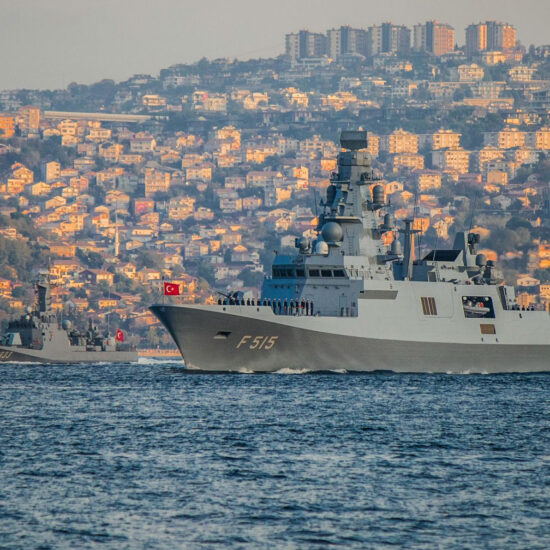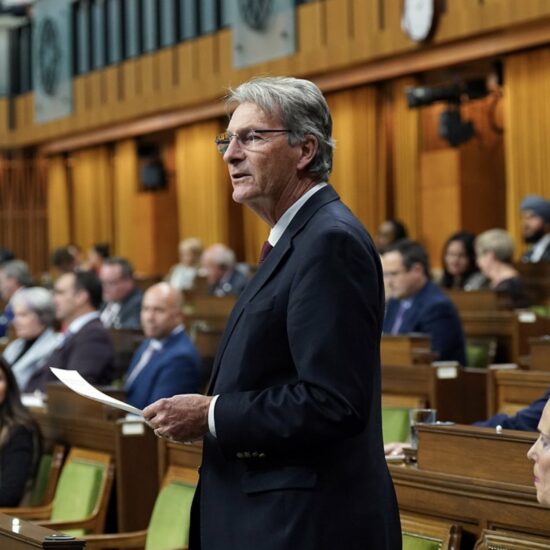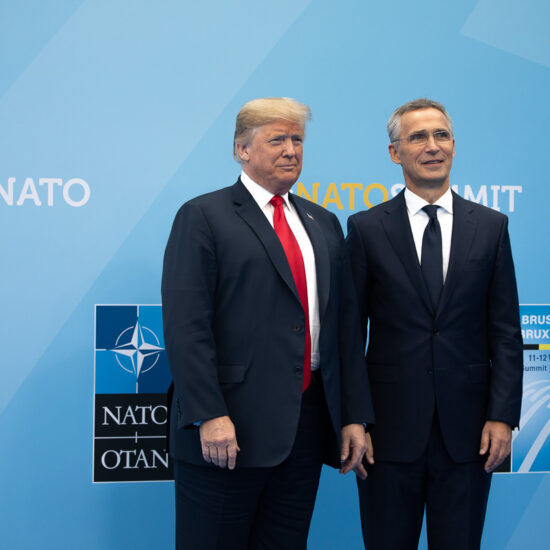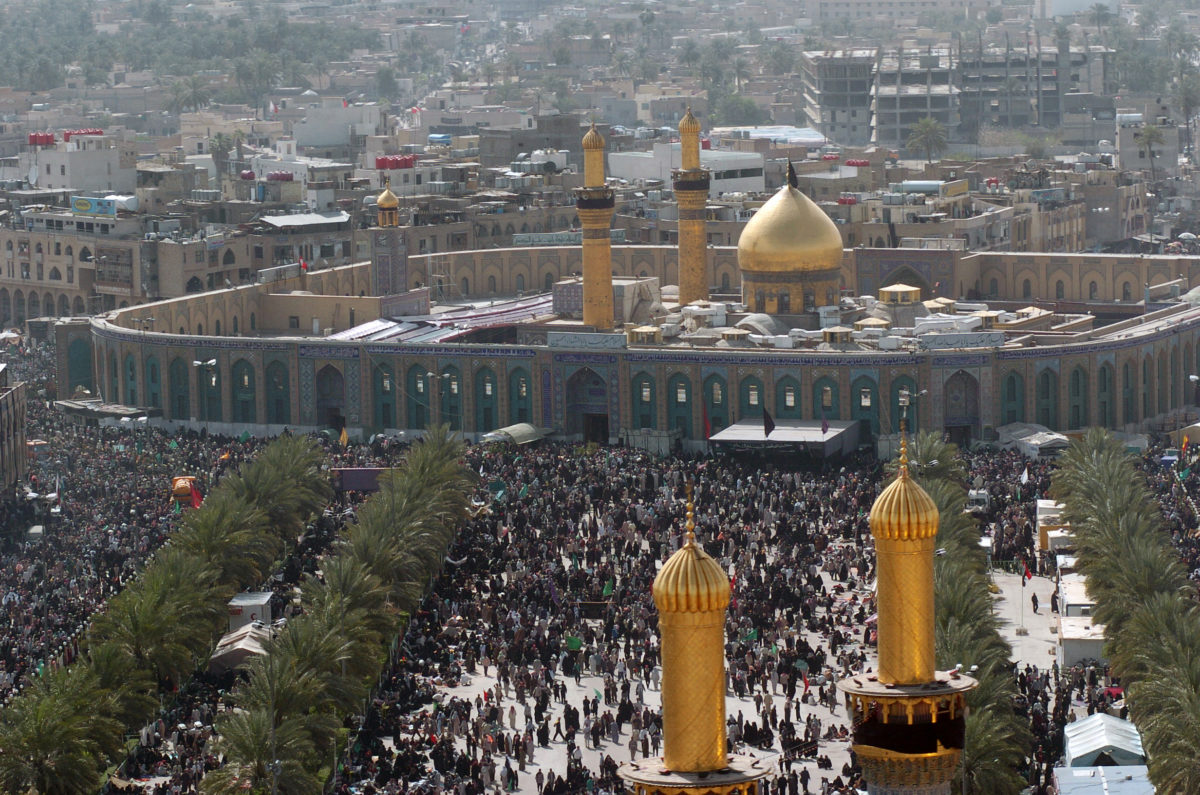
Millions of Shia Muslims gather around the Husayn Mosque in Karbala after making the Pilgrimage on foot during Arba’een.
By Wardah Malik
Last month, Iraqi Prime Minister Adel Abdul-Mahdi decreed that militia groups, known as the Popular Mobilisation Forces (PMF), will be integrated into national armed forces and subject to the same regulations as the army. For Mahdi, integrating armed fractions is the only viable option to restore government control that was degraded with the spread of the Islamic State. Militias, however, will retain some autonomy by becoming a subsection of counter-terrorism service rather than a part of larger military unit. Consequently, Iraq’s military and political culture are rapidly shifting to accommodate varying interests. Qais al-Khazali, leader of the Iran-backed Righteous (Asaib Ahl al-Haq), is one of many militants who expressed public support for Mahdi’s decision and authority. With leaders such as al-Khazali becoming more involved in politics, it is clear that Iraq’s future is dependent on a harmonious relationship between militias and politicians.
The US, nevertheless, is more fearful of the potential threat of militias and, thus, hesitant to preserve the power of such groups; adding that PMF is under Iran’s “bidding” and working to dismantle US efforts in Iraq. In June, for example, U.S. officials accused Iran-affiliated militias of piloting drones from Iraq that targeted Saudi oil infrastructure. More recently, the PMF has claimed both Israel and the US of carrying out a series of drone attacks on Iraqi militia bases north of Baghdad. American officials, however, have denied any role in the explosions and stressed that Iran remains untrustworthy. Bessma Momani, a senior fellow at the Centre for International Governance Innovation, has also suggested that Iran uses proxies in Iraq to deliberately target U.S. troops: “Iran is very careful to never do it [drone attacks] themselves because they want to be able to have deniability.” Escalating tensions between U.S. and Iran, has prompted Canadian officials to express concern for troops deployed in Iraq. Nevertheless, Canada has announced that it will continue to command the NATO Mission in Iraq (NMI) until November 2020. This move overrides the previous decision to appoint leadership to another NATO member.
The NMI, now under the leadership of Major-General Jennie Carignan, is a “non-combative” and “capacity-building” mission designed to strengthen Iraqi security forces and government institutions. As a Major General, Carignan will be responsible for 850 Canadian military personnel; with 250 soldiers part of NMI and 600 soldiers a part of the anti-ISIS coalition (“Operation IMPACT”). Scott Taylor, a former soldier in the Canadian armed forces, however, argues that new leadership does not mean “success for the NMI.” This is because NMI will continue to operate without a “stated goal.” Essentially, NMI intends to reform Iraqi institutions but due to its ambiguity fails to achieve an effective long-term solution that truly improves Iraqi society. Still, Canada has decided to extend its overseas mission, a move that Taylor says harms Canadian interest as it is done to appease allies instead of securing national interests.
Although neither the Canadian government nor NATO have defined what success is for NMI, the mission still presents a useful opportunity for Canada to re-evaluate its position in Iraq. That is, the NMI allows Canada to uphold its international commitments on behalf of NATO whilst also expanding its diplomatic influence in the Middle East. Firstly, Canada has to come to terms with the changing landscape of Iraqi military structure and accommodate its own agenda accordingly. Simply put, Canada must adapt to and realize the important role Iran plays in Iraq’s newly reformed military and security apparatus. If long-term stability in the region is the ultimate objective, then Canada needs to open up and communicate with Iran through diplomatic channels – a move that would spark great controversy after the Liberal Government overwhelmingly voted for the Conservatives’ motion in the House of Commons, calling on the government to ” abandon its current plan and immediately cease any and all negotiations or discussions with the Islamic Republic of Iran to restore diplomatic relations” and to “list the IRGC as a foreign terrorist entity under the Criminal Code.” Given the rising tensions between Iran and the US in Iraq, Canada’s ignorance of Iran’s military influence in the country and lack of engagement with the Iranians may drag Canada into an unwanted conflict in Iraq and damage the Iraqi-Canadian security alliance.
Over the years, the relationship between Iraq and Canada has been strengthened as Canada committed over $2 billion in restorative aid to reconstruct Iraqi territory destroyed by the Islamic State. However, the relationship was compromised when Canada provided substantial training and financial assistance to Kurdish Peshmerga fighters, an anti-government coalition, to battle Islamic State jihadis in 2014. This move almost cost Canada its relationship with Iraq and, ultimately, forced Candian officials to retract support for Kurds in order to restore friendly relations with the Iraqi government. Although the intent of Canada was to battle terrorism, the support for the Kurds was done without input from the Iraqi government. Since then, Canada has supported a united Iraq and insisted on building a strong central government in Baghdad. In order to prevent further deterioration in Canada-Iraq relations, Canada must cooperate with all the parties approved by the government of Iraq as they are reforming their military and security apparatus.
Despite past border conflicts and previous agitations, the Iran-Iraq relationship is long-standing and it was reinforced after Iran managed to fill the political vacuum left by Saddam Hussein’s ousting. Since 2003, Iran has fostered Iraq’s nascent institutions by urging its closest allies – Badr, the Islamic Supreme Council of Iraq (ISCI), Dawa and the Sadrists to participate in politics. These Shi’ite parties dominate the state and extend Iranian soft power in Iraq’s military, social, and religious institutions. As such, Canada cannot ignore their political salience and power. There is little reason to believe that Iran will lose its influential position in Iraq. In fact, the recent integration of PMF signals the growing closeness between Iran and Iraq. As part of the NMI, Canada needs to address Iran’s position in the PMF and Iraq must facilitate this understanding.
In May, Abdul-Mahdi promised to send a delegation to the US and Iran to “help end tensions between the two countries” adding that Iraq remains neutral in the conflict. As Canada and Iran do not have diplomatic relations Iraq can play a mediatory role to open a channel of communication between Canada and Iran. Abdul-Mahdi has repeatedly stressed that Iraq has good relations with both Western countries and Iran and has “no desire in fighting a war.” In this vein, it is in Iraq’s best interest to help establish a diplomatic channel between Iran and Canada. A senior Iraqi diplomat, under the condition of anonymity, said: “Iraq would be ready to mediate between Iran and Canada but they have to agree to negotiate first.” If Canada is serious about capacity building and maintaining good relations with Iraq, it should actively seek out communication with all parties with influence in Iraq including Iran. With established communication, the NATO extension can be used wisely and ultimately achieve long term stability in Iraq that goes beyond a year’s commitment.

